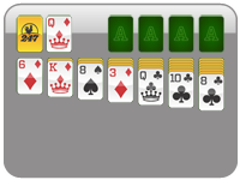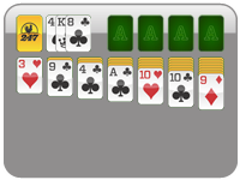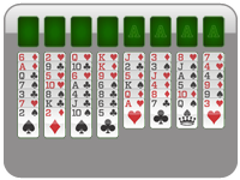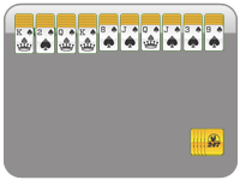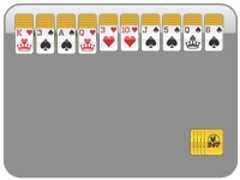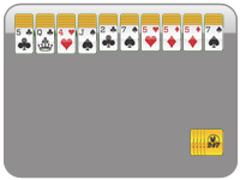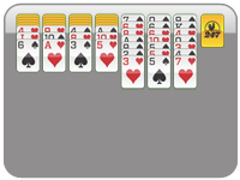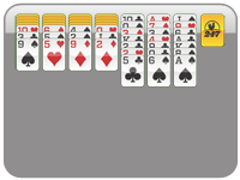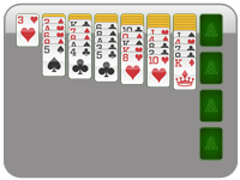Using Card Games to Learn Business: What Can Card Games Teach Us About Business?

Games are fantastic teachers of social interaction. They're able to conceptualize the highest stakes of a boardroom between a few people passing cards around the table. Like marketing, sales, or investment, card games involve the trade of human connection and collaboration—and with all of these, how the game is played is just as important as the outcome.
Interested in learning how to use card games to learn about business? We'll cover the most important lessons card games can impart to you.
Using card games to learn business lessons
No one is born knowing how to play cards—although research is pretty scant on the subject. Learning card games involves further refinement through practice, and this is exactly what your competitors are doing, too. Plus, there are factors that you can never truly predict, meaning one of the things that card games can help you learn is that luck of the draw plays a big role in success.
Noticing comparisons to the business world already? Let's dive deeper into the different ways you can use card games to learn business tactics and how the King, Queen, and Jack can be our professional mentors.
Card games can teach you how to read other players

Business proceedings live and die on how people—clients, investors, or otherwise—receive them. Marketing is all about making your product or service the most appealing among competitors. There are many inherent qualities of a pitch that make it successful regardless of the topic. With all that being said, how can we use card games to learn how to read people so we can better appeal to them?
For starters, players will generally act for their own self-interest, but that doesn't mean they're trying to pull a fast one to complete their goals. Most play for the love of the game and to exhibit their skills—remarkably few poker players are actually card counters. It's important to match that same level of earnestness in your own conduct.
A business that treats future partners as adversaries to outplay is displaying bad faith in its proceedings and isn't an entity most would want anything to do with. Instead of considering how others are planning to get a leg up over your plans, try and anticipate exactly what they're looking for. Supply and demand, right?
Something to keep in mind, though. While most businesspeople aren't out to play mind games, any venture can be riddled with holes or liabilities that are either unmentioned or unnoticed by those bringing it into play. Here, using card games to learn and practice how to read people becomes incredibly important because, unfortunately, many optimists have a habit of kidding themselves. Asking the right questions is difficult, but these questions will unveil the messy truth about your fellow player's hand.
Card games can show you when to hold and when to fold
Interesting fact: it's estimated that only 80% of Solitaire games are even winnable. This is due to the sheer magnitude of 52-card deck probabilities. So, if you could only use card games to learn one thing, then it would be that every venture isn’t supposed to succeed—sometimes, the cards just aren't there. The real skill is deciding whether to stick with a decision or abandon it before it's too late, which is something that all Solitaire card games can teach you.
It's tempting to commit to enticing ventures, especially if we accidentally let our own egos become involved. Whether someone's committed a lot of time to a personal project or became heavily invested in what was pitched to them, not every idea can be a winner. It's incredibly important to recognize this and know when to pull the plug. No matter how many times you cycle through the deck, hoping for a eureka moment, sometimes a game just isn't in the cards.
But don't forget that some ventures are worth the test of time! Many who've seen success in the business sphere did so by sticking to their guns. When you know in your heart you have the right hand, don't fold it!
You can use card games to learn negotiation

Respect is difficult to earn and easy to lose. Bluffing can sometimes be fun in card games where the stakes aren't really high, that much is true, but that kind of deceitful strategy only ever seems to work once. When the bluffer's tactics are exposed, people will remember, and they have no foundation to stand on. This is definitely one thing you can use card games to learn and apply in your business dealings.
Similarly, overreach and overpromising condemn projects. One of the biggest sins you can commit as a business leader is a failure to deliver. It's tempting when striking deals or pitching projects to try and “sweeten the deal” with possibilities that you can't justly promise. If you are found out, though, you'll regret it.
Some projects may fall through, and that can still lead to a positive relationship between parties, but only if business is conducted honestly. Break the foundation of trust in business and every future claim will be received with little trust in your ability. Plus, rumors spread, which could jeopardize future deals with others.
Play to your strengths and, more importantly, to reality. The benefit of this is that, when we're obliged to work under constraints, many people often find their work becomes realized in ways they never could have imagined.
Card games can teach you how to prepare for the unpredictable
A core tenet of practically every card game is randomness, but luck isn't the sole deciding factor for which players come out on top. When new hands are passed out, players need to be ready to react and adapt to new circumstances right then and there. Sticking obstinately to a strategy can be dangerous, especially if the tide of the game begins pushing you in new directions.
Similarly, business is complicated, and new challenges will always crop up. So, another thing you can use card games to learn is to be ready for change. The best business, after all, is conducted proactively, instead of reactively, to lessen any damage received by change.
Play your hands smart and don't throw the game just because things get difficult. Prepare for challenges that might arise and plan accordingly. While it may be impossible to know exactly what the luck of the draw has in store, navigating the rocky waters keeps you in the game. Always keep your mind focused on your goals, and remind yourself that not every roadblock is as insurmountable as they may at first seem.
Learn time management and organization skills with card games
Many card games are multi-faceted endeavors with many goals, short-term and long-term, all vying for your attention. For example, you can't complete your foundations in Solitaire before you've uncovered every card in the tableau. A good player needs to be able to prioritize their efforts and see the steps towards their greater goal which is another thing you can use card games to learn.
Play free solitaire now!
Any business leader understands the importance of organizing their time and prioritizing tasks, but this skill requires more than just a calendar app. You need to evaluate what's in front of you, decide on the moves that will quickly lead to success, and find follow-up opportunities to maintain that success.
Also, don't jump the gun all the time! You may find you're able to extract greater value from patient strategy and controlled allotment of your resources rather than playing big hands immediately. Focus on consistent little wins that will see you down the path to success.
Business isn't all about diamonds — you've got to capture hearts, too!
Take these lessons from our favorite games and apply them to your business. Every day, in the games we play and the jobs we work, there are victories and losses. You may make mistakes, but you will always learn lessons. At the end of it all, there's no greater lesson from card games than the fact that losing is not the end.
Armed with newfound knowledge and experience, it's only up to you to pick yourself up and try again. Now, it's time for you to hone your gaming skills and start seeing more success in the grand game of modern business.
Solitaire Games
More Solitaire Games
More Games
Solitaire News
Disclaimer
DISCLAIMER: The games on this website are using PLAY (fake) money. No payouts will be awarded, there are no "winnings", as all games represented by 247 Games LLC are free to play. Play strictly for fun.

